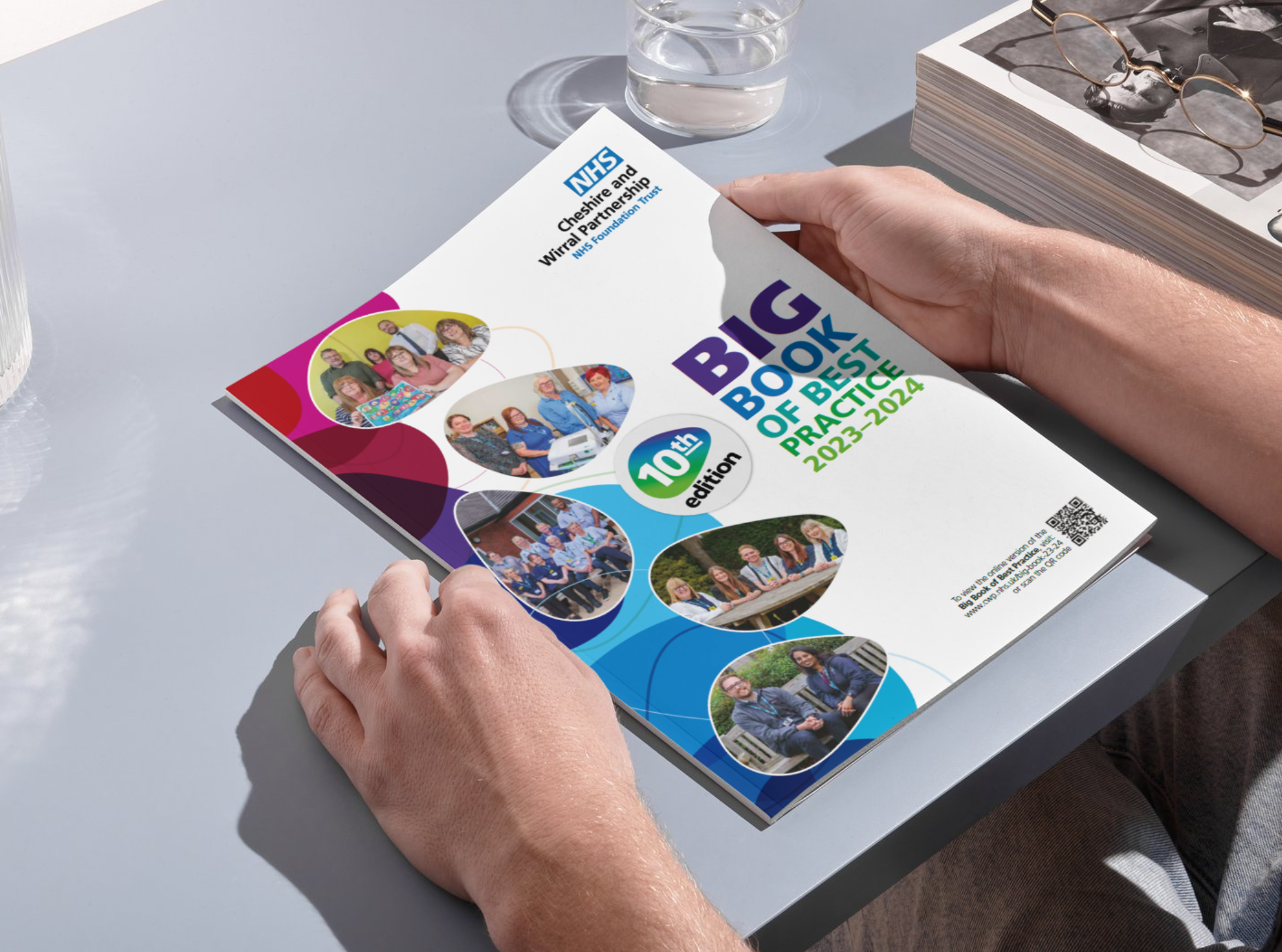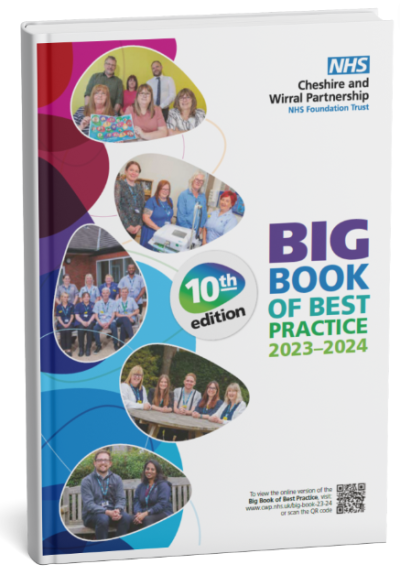View the online version of the Big Book of Best Practice
In addition to the PDF version of the Big Book of Best Practice, we have produced an accessible, web-based version of the book for 2023-24, which you can view via the buttons below. This year's case studies have been split by care group so please select the name of the care group you wish to view the case studies for.
For more information about the Big Book of Best Practice, please email cwp.

